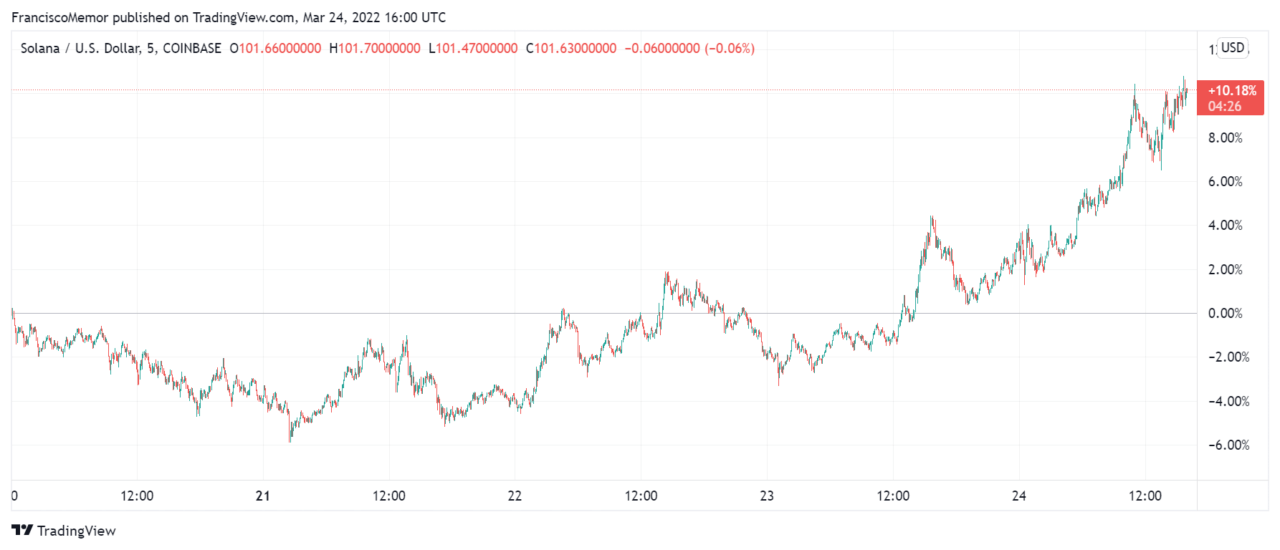Popular cryptocurrency analysts have been analyzing Solana’s price performance to determine key levels $SOL must surpass in order to maintain its bullish trend, and have shared their results on social media.
The price of Solana has moved steadily upward over the last few days, with the smart contracts platform moving above $100 for the first time in weeks amid a broader cryptocurrency market recovery this week. At the time of writing, $SOL is trading at $101.5.

According to popular cryptocurrency market analyst Michaël van de Poppe, the price of SOL may find resistance between the $112 and $130 marks before maintaining its bullish trend. Solana is notably far from its all-time high of around $250 seen late last year.
The cryptocurrency’s price has notably been recovering amid a plethora of developments, including its daily active users shooting up last month and being added to Coinbase Wallet, meaning users can now “manage their Solana (SOL) and Solana tokens (SPL) alongside their tokens held on all of Coinbase Wallet extension’s supported networks, including Ethereum, Avalanche, Polygon, BNB Chain, and many more.”
The cryptocurrency was also recently included in a new fund Grayscale Investments launched offering investors exposure to a variety of smart contract networks other than Ethereum ($ETH). Along with Cardano ($ADA), it’s a top holding in the Grayscale Smart Contract Platform ex Ethereum Fund (GSCPxE)
Ali Martinez, another popular cryptocurrency analyst, has also recently noted Solana’s price appears to have “formed a falling wedge on the daily chart,” and added that a “decisive close above $94 could send SOL to $120.”
Solana is a high-performance blockchain founded by former Qualcomm, Intel, and Dropbox engineers that uses a delegated Proof-of-Stake (dPoS) consensus algorithm. The network uses a unique method of ordering transactions to significantly improve its speed and throughput.
Using what’s known as Proof-of-History (PoH), the Solana blockchain is able to handle thousands of transactions per second. PoH uses Verifiable Delay Functions to hash incoming events and transactions to allow nodes to locally generate timestamps of SHA256 computations, eliminating the need for timestamps to be broadcasted across the network.
DISCLAIMER
The views and opinions expressed by the author, or any people mentioned in this article, are for informational purposes only, and they do not constitute financial, investment, or other advice. Investing in or trading cryptoassets comes with a risk of financial loss.
IMAGE CREDIT
Featured image via Unsplash.









